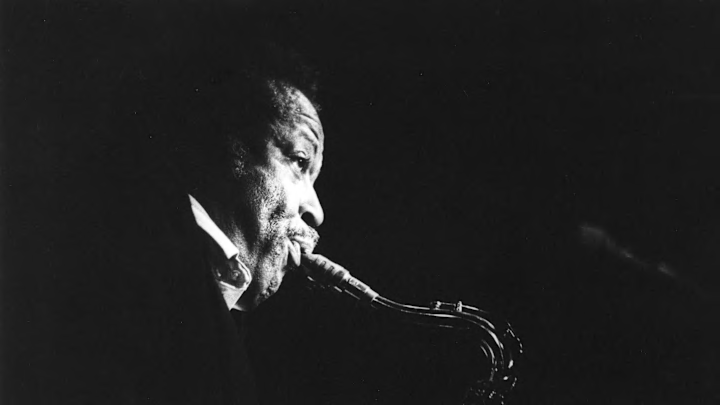Eddie "Lockjaw" Davis was an influential American jazz tenor saxophonist, known for his robust, gritty sound and unique style that blended swing, bebop, and hard bop elements. Born on March 2, 1922, in New York City, Davis developed his musical chops during the 1940s, playing with prominent big bands such as those led by Cootie Williams and Lucky Millinder.
There are many theories on how Davis earned the nickname "Lockjaw," but it's most likely because of his forceful playing style, which became his signature. In the 1950s, he started working with organist Shirley Scott, and together they created one of the most famous organ-sax combos in jazz. Their collaboration brought a soulful, bluesy edge to jazz, characterized by Davis's aggressive sax tone and Scott's smooth organ playing.
They released numerous albums, including The Eddie Davis Trio Featuring Shirley Scott and Smokin' (1958). In addition to his partnership with Scott, Davis worked with other jazz greats like Count Basie, with whom he played for several years during the 1950s and 1960s, further proving himself as a versatile and powerful player. His recordings with Basie's orchestra include standout tracks that showcase his ability to swing hard while maintaining his distinct sound.
Davis's playing style was marked by a raw, sometimes raspy tone, combining a deep blues influence with more modern jazz harmonies. His phrasing could be both playful and intense, often playing behind the beat to create a laid-back feel or attacking notes with vigor to drive a performance forward. He continued to perform and record throughout his career, with later notable albums including The Heavy Hitter (1979) and Lockjaw and Company (1983).
Eddie "Lockjaw" Davis' legacy
Davis passed away on November 3, 1986, but his contributions to jazz remain influential, particularly his work in bridging the worlds of hard bop and organ jazz. Davis’s unique sound, collaborative spirit, and dedication to jazz helped him carve out a lasting legacy in the world of jazz saxophone. His distinctive style helped him win acclaim among bebop fans.
At one point, Davis expressed concerns about the slovenly future of jazz: "People pay good money to see Basie. They see a presentable band and we hope they hear good music. What would they say if we came on the stand in flower shirts, sweaters and looked as if we were just going bowling? Would they come again? Look at it this way; you wouldn’t much fancy layin’ out money for a steak on a cardboard plate now, but present it right on good china with a sprig of parsley and all the trimmings and you’ll pay a couple of pounds."
Though he's unlikely to be inducted into the Rock & Roll Hall of Fame (which does induct jazz and pop artists), "Jaws" nevertheless had an influence on music.
